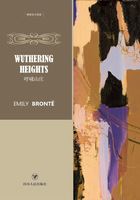But for whatever old causes such people might be interested in each other, their distinguished host was not specially interested in them. No one of them at least was in his eyes the guest of the evening. Valentin was expecting, for special reasons, a man of world-wide fame, whose friendship he had secured during some of his great detective tours and triumphs in the United States. He was expecting Julius K. Brayne, that multi-millionaire whose colossal and even crushing endowments of small religions have occasioned so much easy support and easier solemnity for the American and English papers. Nobody could quite make out whether Mr. Brayne was an atheist or a Mormon or a Christian Scientist; but he was ready to pour money into any intellectual vessel, so long as it was an untried vessel. One of his hobbies was to wait for the American Shakespeare—a hobby more patient than angling. He admired Walt Whitman, but thought that Luke P. Tanner, of Paris, Pa., was more "progressive" than Whitman any day. He liked anything that he thought "progressive." He thought Valentin "progressive, " thereby doing him a grave injustice.
The solid appearance of Julius K. Brayne in the room was as decisive as a dinner bell. He had this great quality, which very few of us can claim, that his presence was as big as his absence.
He was a huge fellow, as fat as he was tall, clad in complete evening black, without so much relief as a watch-chain or a ring. His hair was white and well brushed back like a German' s; his face was red, fierce and cherubic, with one dark tuft under the lower lip that threw up that otherwise infantile visage with an effect theatrical and even Mephistophelean. Not long, however, did that salon merely stare at the celebrated American; his lateness had already become a domestic problem, and he was sent with all speed into the dining-room with Lady Galloway on his arm.
Except on one point the Galloways were genial and casual enough. So long as Lady Margaret did not take the arm of that adventurer O' Brien, her father was quite satisfied; and she had not done so, she had decorously gone in with Dr. Simon. Nevertheless, old Lord Galloway was restless and almost rude.
He was diplomatic enough during dinner, but when, over the cigars, three of the younger men—Simon the doctor, Brown the priest and the detrimental O' Brien, (the exile in a foreign uniform)—all melted away to mix with the ladies or smoke in the conservatory, then the English diplomatist grew very undiplomatic indeed. He was stung every sixty seconds with the thought that the scamp O' Brien might be signalling to Margaret somehow; he did not attempt to imagine how. He was left over the coffee with Brayne, the hoary Yankee who believed in all religions, and Valentin, the grizzled Frenchman who believed in none. They could argue with each other, but neither could appeal to him. After a time this "progressive" logomachy had reached a crisis of tedium; Lord Galloway got up also and sought the drawing-room. He lost his way in long passages for some six or eight minutes: till he heard the high-pitched, didactic voice of the doctor, and then the dull voice of the priest, followed by general laughter. They also, he thought with a curse, were probably arguing about "science and religion." But the instant he opened the salon door he saw only one thing—he saw what was not there. He saw that Commandant O' Brien was absent, and that Lady Margaret was absent too.
Rising impatiently from the drawing-room, as he had from the dining-room, he stamped along the passage once more. His notion of protecting his daughter from the Irish-Algerianer-do-weel had become something central and even mad in his mind. As he went towards the back of the house, where was Valentin's study, he was surprised to meet his daughter, who swept past with a white, scornful face, which was a second enigma. If she had been with O' Brien, where was O' Brien! If she had not been with O' Brien, where had she been? With a sort of senile and passionate suspicion he groped his way to the dark back parts of the mansion, and eventually found a servants' entrance that opene d on to the garden. The moon with her scimitar had now ripped up and rolled away all the storm-wrack. The argent light lit up all four corners of the garden. A tall figure in blue was striding across the lawn towards the study door; a glint of moonlit silver on his facings picked him out as Commandant O' Brien.
He vanished through the French windows into the house, leaving Lord Galloway in an indescribable temper, at once virulent and vague. The blue-and-silver garden, like a scene in a theatre, seemed to taunt him with all that tyrannic tenderness against which his worldly authority was at war. The length and grace of the Irishman' s stride enraged him as if he were a rival instead of a father; the moonlight maddened him. He was trapped as if by magic into a garden of troubadours, a Watteau fairyland; and, willing to shake off such amorous imbecilities by speech, he stepped briskly after his enemy. As he did so he tripped over some tree or stone in the grass; looked down at it first with irritation and then a second time with curiosity. The next instant the moon and the tall poplars looked at an unusual sight—an elderly English diplomatist running hard and crying or bellowing as he ran.












